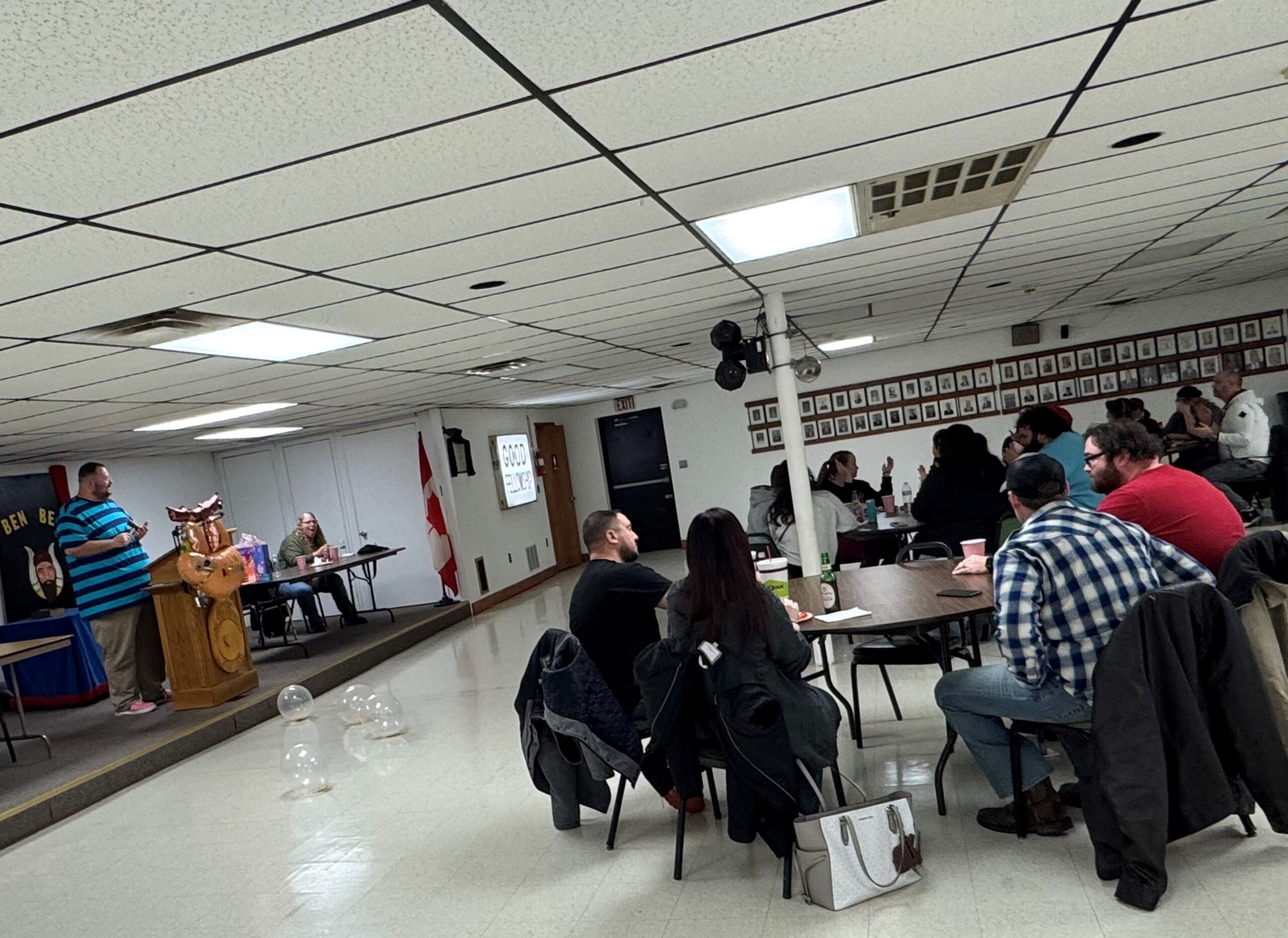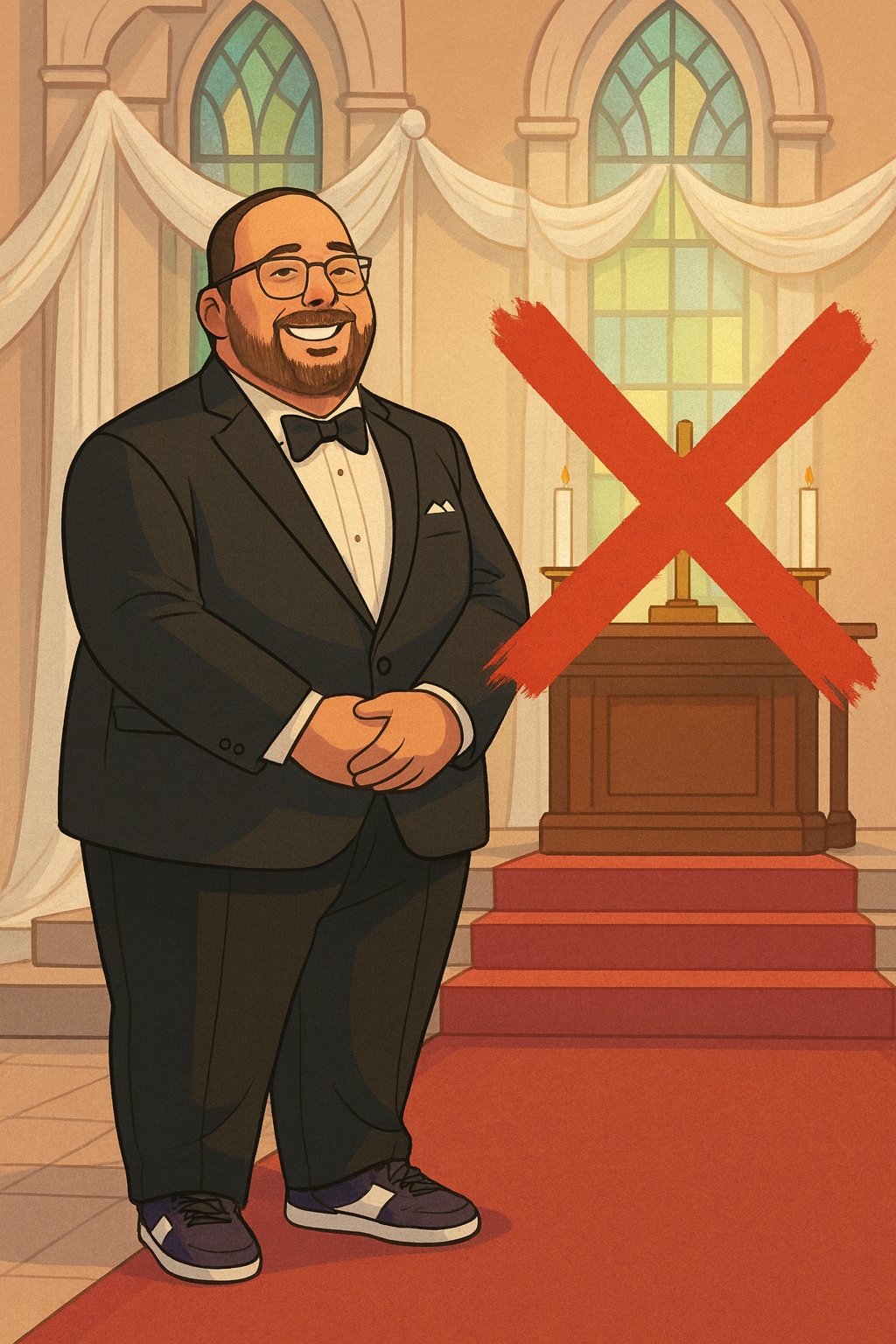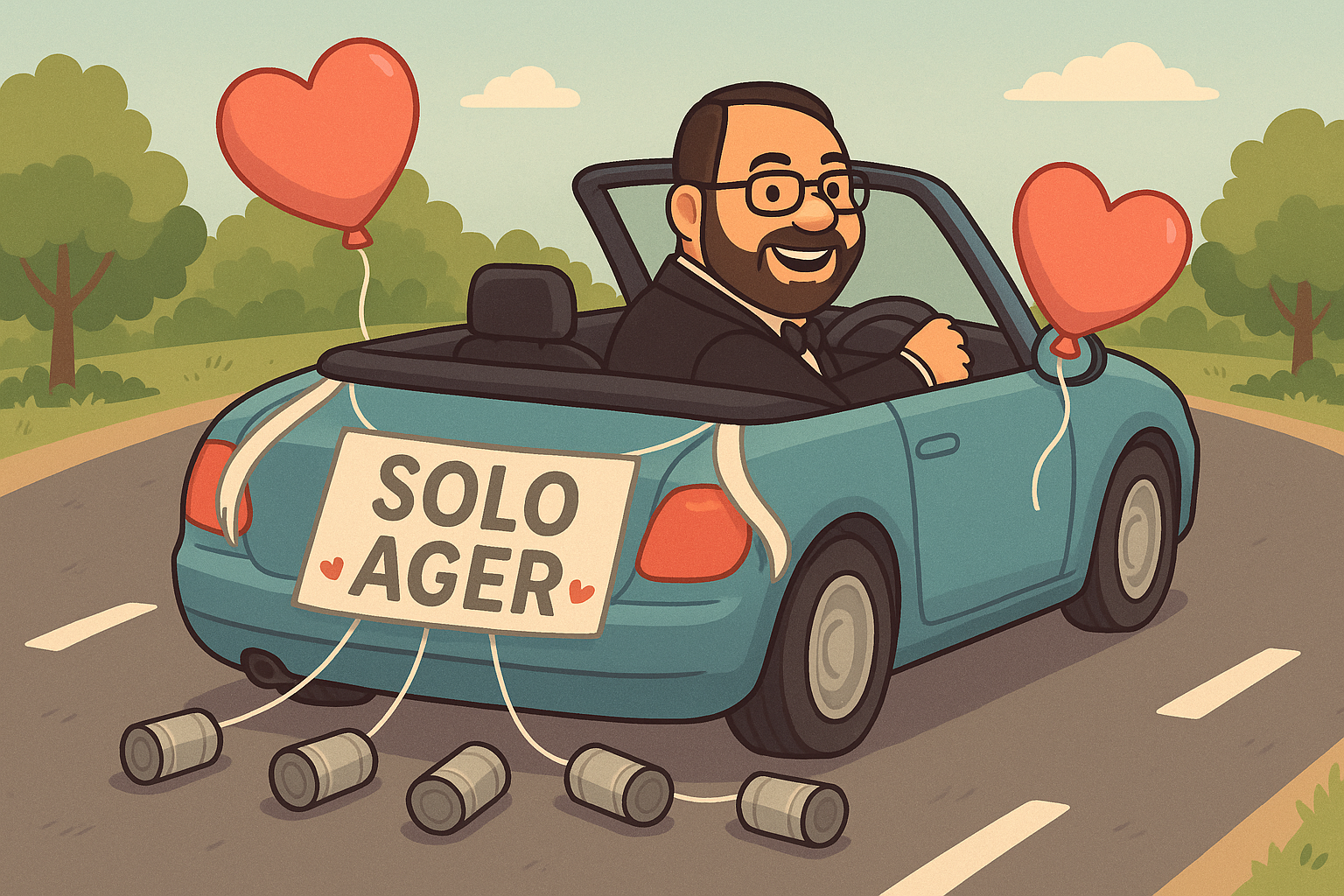Written By Marketing Manager Jonathan E. Corra, MA, CDP
Earlier this year I celebrated my 41st birthday. When you turn 41, it’s not that exciting. It’s not one of those big cultural milestone birthdays. I can drive, rent a car, vote, purchase alcohol, and even run for congress. The next big one is still nine years away.
While my party was a lot of fun, and I have great memories, something that happened a few days later nearly broke me. My party was held the weekend before my actual birthday. At the party I was surrounded by friends and my sister. However, on my actual birthday I was alone. And then it hit me. This was a milestone birthday. It wasn’t one that you get a special card for either. Instead, it was a personal milestone as I realized this was the age my dad first got sick. He was diagnosed with brain cancer, and he passed a few months shy of 43. I lost my dad at 15. It’s been over 20 years, and I don’t think about it much. (Therapy is great, and time is a great healing power.) It’s only when these small reminders pop up that my father’s illness pops in my head. Since I was alone, and reminded that I too will die eventually, I did the only thing I could think of…cry and then eat.

According to my doctor, we’re all going to pass away at some point in the future. But I have a unique challenge that is actually impacting more and more people every year, solo aging. You see, at 41 my dad was married, had one good kid and one that is writing this blog, a house, two cars, friends that adored him, and so many skills. I have some Hot Wheels and a ton of debt. I don’t have a spouse. I don’t have children, and I don’t want any either. The only other living thing in my house is a cat who resents me. I have one sister who lives in Tennessee. I live in West Virginia on the Ohio border. I have some family that I am close with locally, but they are in their 70’s. Simply put, I am going to die alone. And I am ok with that.
As a solo ager, there are unique needs that come up when you’re ready to start your estate planning. Luckily, I work for a firm that only focuses on estate planning and asset protection, so I know what I need to do. However, most of you reading this aren’t in the same boat. With that in mind, I’d like to share what I’ve learned with you.
Here is the first, and honestly, the most important thing you need to do…commit to making a plan. Too often, folks who are solo agers choose not to plan anything. They think that being alone means that they don’t need to make a plan. Solo agers think that there is no one who they need to leave their stuff to, so they don’t need a will. But, as we all know, proper estate planning involves more than just advising who you want to get your Hot Wheels collection and that cat who is probably responsible for your death. Make a plan. Everyone over 18 needs to make a plan of some sort. A will is a great start, but it’s not the only thing. Let’s take a look at what solo agers should do to plan for their next journey.

Why Having a Will Matters for Solo Agers
If you’re aging alone, having a will is not just important—it’s essential. A will is your written instruction manual for what happens to your assets after you pass away. Without it, the court will decide who inherits your money, belongings, and property based on state law. That means people you may not have chosen, like distant relatives or even the state—could end up with everything you worked for.
A will gives you control. It lets you name exactly who should receive your assets, whether that’s a close friend, a niece or nephew, or even a charitable organization you care about. You can also use your will to name a guardian for pets or someone to manage your digital accounts. For solo agers who may not have obvious heirs, a will is your chance to put a plan in place, so your wishes are respected.
Why a Power of Attorney is a Must
Imagine this: you’re in the hospital, unable to pay your bills, move money between accounts, or make important financial decisions. Who steps in to help if you don’t have a spouse or adult children? That’s where a financial Power of Attorney comes in.
This document allows you to legally name someone you trust to handle your finances if you can’t. That could be a friend, a trusted advisor, or even a professional fiduciary. Without this document, no one can act on your behalf unless a court gets involved, which is expensive, time-consuming, and completely avoidable.
For solo agers, this isn’t a backup plan. It’s the plan. Choosing someone now, while you’re healthy, ensures that if something unexpected happens, your bills still get paid, your investments stay managed, and your life continues as smoothly as possible.
Why a Medical Power of Attorney is Crucial
Just like someone needs to handle your finances, someone also needs to speak for you if you can’t make your own medical decisions. A Medical Power of Attorney (also known as a Health Care Proxy) lets you name that person.
This document is particularly important for solo agers because the hospital won’t automatically know who to contact if you’re unconscious or seriously ill. You may not have a spouse or kids to default to—and in those moments, you want someone you trust making choices that align with your values and wishes.
This person should be someone who knows you well and won’t be overwhelmed in a crisis. You can talk to them in advance about what matters most to you—whether it’s aggressive treatment, quality of life, or something in between. That way, they’re ready to advocate for you if the time ever comes.
Why You Need a Living Will
A Living Will is often confused with a traditional will, but they’re two very different things. While a regular will talks about what happens after you die, a Living Will focuses on what happens while you’re still alive but unable to communicate.
It spells out your preferences for medical treatment in life-threatening situations. For example, would you want to be on a ventilator? Would you want CPR? Would you prefer to be kept comfortable and let nature take its course?
As a solo ager, a Living Will removes the guesswork. It takes the pressure off your medical Power of Attorney and your doctors by clearly stating what you do or don’t want. This isn’t about giving up control. It’s about making sure your voice is heard, even if you can’t speak.

Why a HIPAA Authorization is a Small but Mighty Document
HIPAA might sound like just another piece of red tape, but it plays a big role in your planning. It’s a simple form that gives permission for your medical team to share your private health information with specific people you name.
Without this form, your chosen decision-makers could run into major roadblocks when trying to access your medical records. That includes the person you name in your Medical Power of Attorney. Yes, just because you chose them doesn’t mean the hospital can talk to them unless you’ve also completed a HIPAA authorization.
For solo agers, this document is about making sure the right people are in the loop. It helps avoid delays, confusion, and unnecessary stress during emergencies. Think of it as the glue that holds your health care plan together.
Final Thoughts: You Might Be Solo, But You Don’t Have to Do This Alone
Estate planning isn’t just about who gets your things when you’re gone. It’s about protecting your voice, your choices, and your peace of mind while you’re still here. For those of us navigating life without a spouse or children, the need to plan is even more urgent—not because we’re afraid, but because we’re in charge. No one’s going to magically appear to make decisions for us, so we have to be intentional now, while we can.
You don’t need to have a sprawling estate or a traditional family structure to justify making a plan. All you need is the desire to stay in control of your life—on your terms. That includes making sure your health care wishes are honored, your money goes where you want it to go, and someone you trust can step in when needed.
If you’re a fellow solo ager and not sure where to start, I’d love to help. At Jarvis Law Office, we offer free, no-pressure consultations to walk you through what’s possible and help you create a plan that fits your life. You don’t have to have everything figured out, you just need to take that first step.
Schedule your free consultation today. Because while we may age solo, we don’t have to plan solo.








